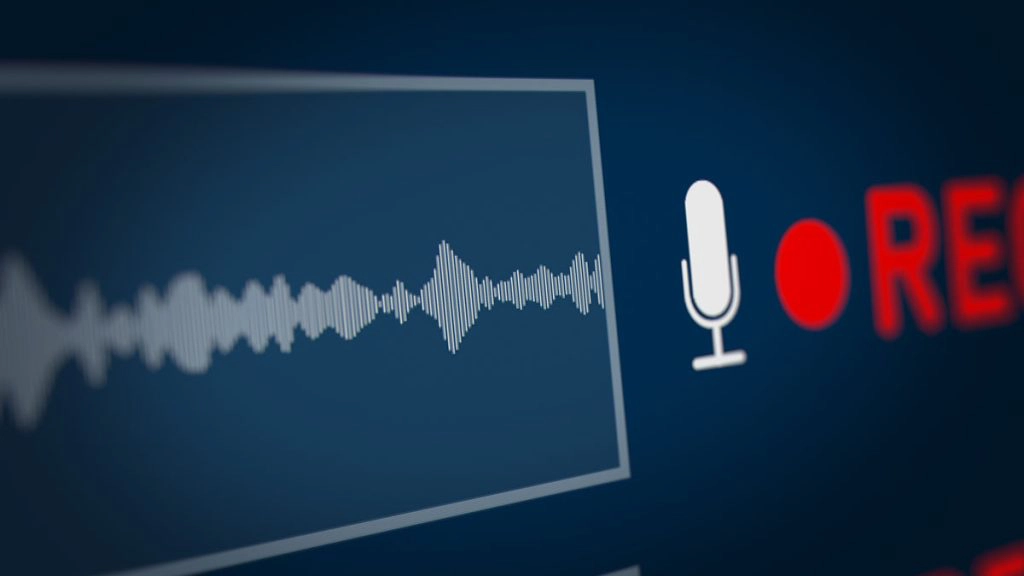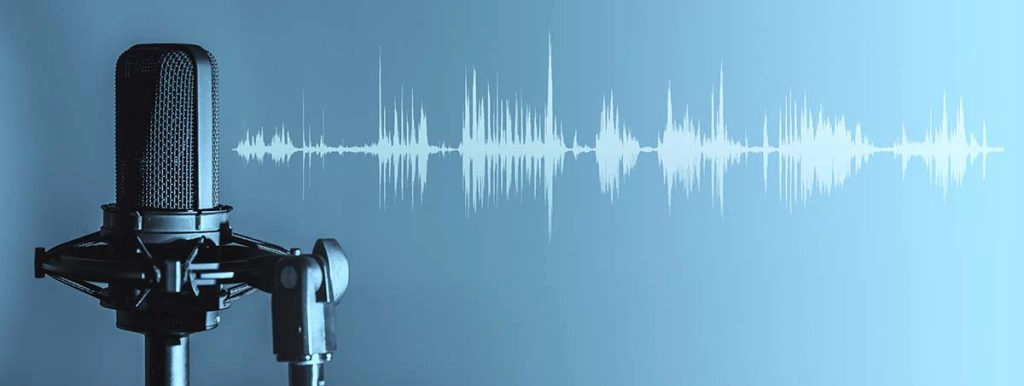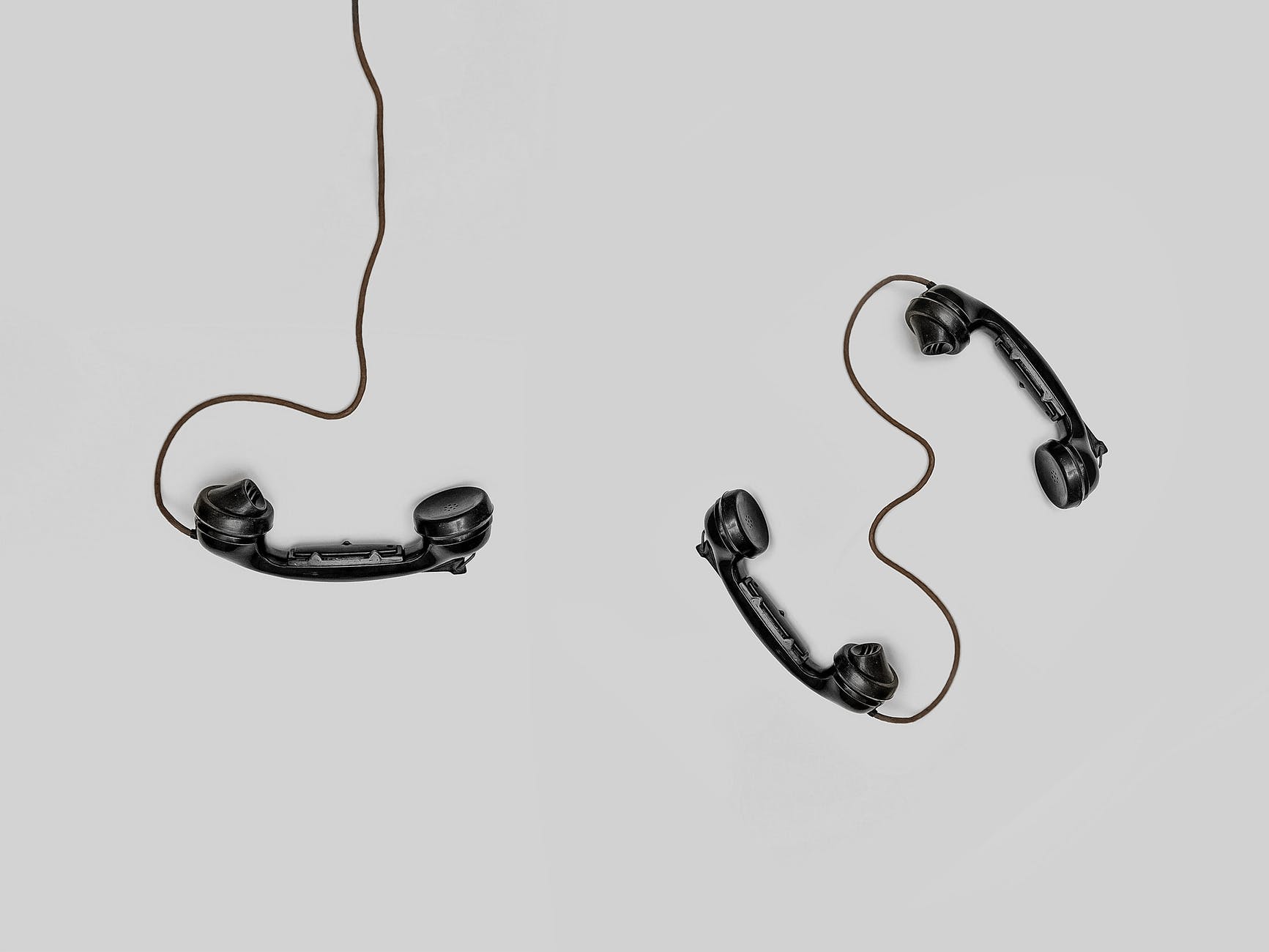- Vermont Recording Law Summary:
- The Legal Foundation: Case Law
- What Communications Are Covered
- One-Party vs. Two-Party Consent Explained
- Can You Record Phone Calls in Vermont?
- Recording Calls Across State Lines
- Business Call Recording
- When Is It Legal?
- The Expectation of Privacy Standard
- When Is It Illegal?
- What About Recording in Your Own Home?
- Public Spaces
- Private Property and Privacy
- Can Your Employer Record You?
- Can You Record Your Employer?
- Can You Record Police Officers in Vermont?
- Recording Government Meetings
- Can I Record My Landlord in Vermont?
- Can I Record My Doctor in Vermont?
- Can I Record DCF Workers?
- Can I Record My Ex-Spouse or Co-Parent?
- Can I Use a Dashcam in Vermont?
- Are Recordings Admissible in Court?
- Criminal Cases vs. Civil Cases
- Criminal Penalties
- Civil Liability
- Is Vermont a one-party consent state?
- Is Vermont a two-party consent state?
- Why is Vermont's recording law based on case law?
- Can I record a conversation without the other person knowing in Vermont?
- Can I sue someone for recording me in Vermont?
- Do I need to tell someone I'm recording in Vermont?
- Can I record a Zoom call in Vermont?
- Can recordings be used in divorce court in Vermont?
- Two-Party Consent States

Vermont Recording Law Summary: 
Last Updated: January 2025 | Verified against Vermont case law and 13 V.S.A. Chapter 85
Quick Answer
Vermont is a one-party consent state based primarily on case law. You can legally record phone calls and in-person conversations if you’re a participant or have consent from at least one party. Vermont’s recording law is unique because it developed through court decisions rather than a specific wiretapping statute, with key cases like State v. Brooks (1991) and State v. Geraw (2002) establishing the framework.
| Key Point | Answer |
|---|---|
| Consent Type | One-Party (case law) |
| Can you record your own calls? | Yes |
| Must you inform others? | No |
| Legal Basis | Vermont case law / 13 V.S.A. Chapter 85 |
| Constitutional Protection | Article 11, Vermont Constitution |
| Criminal Penalty | Varies by offense |
Our recommended Digital Voice Recorder.
Understanding Vermont’s Recording Laws
The Legal Foundation: Case Law
Vermont is unique among US states because its recording consent framework comes primarily from court decisions rather than a comprehensive wiretapping statute. The Vermont Supreme Court has interpreted Article 11 of the Vermont Constitution (the state’s equivalent of the Fourth Amendment) to establish recording rights and limitations.
Key cases that define Vermont’s recording law:
- State v. Brooks (1991) – Established that recording is lawful in locations without a reasonable expectation of privacy
- State v. Geraw (2002) – Held that secretly recording conversations in someone’s home without a warrant is a criminal offense
- State v. Rheaume (2005) – Clarified that there’s no privacy expectation in public areas like hospital emergency rooms
Vermont does have some statutory provisions in 13 V.S.A. Chapter 85 regarding surveillance and electronic interception, but the one-party consent rule is primarily established through case law.
What Communications Are Covered
Vermont’s recording law applies to:
- Wire communications – Phone calls, including cell phones and VoIP
- Oral communications – In-person conversations with a reasonable expectation of privacy
- Electronic communications – Text messages, emails, video calls
One-Party vs. Two-Party Consent Explained
In a one-party consent state like Vermont, only one person in the conversation needs to know about and consent to the recording. That person can be you. You don’t need to announce “this call is being recorded” or get anyone else’s permission.
In contrast, two-party (or all-party) consent states like neighboring Massachusetts and New Hampshire require everyone in the conversation to agree to be recorded.
Recording Phone Calls in Vermont

Can You Record Phone Calls in Vermont?
Yes. Based on Vermont case law and the one-party consent principle, you can record any phone call you’re participating in without informing the other party. This applies to:
- Landline calls
- Cell phone calls
- VoIP calls (Zoom, Teams, Google Meet, etc.)
- Video calls
Recording Calls Across State Lines
If you’re in Vermont calling someone in a two-party consent state, the stricter law typically applies. Important: Vermont borders two two-party consent states:
- Massachusetts – Requires all-party consent
- New Hampshire – Requires all-party consent
Other two-party consent states include:
- California
- Connecticut
- Florida
- Illinois
- Maryland
- Montana
- Nevada (for phone calls)
- Pennsylvania
- Washington
Best practice: When calling people in two-party consent states (especially neighboring MA and NH), either inform them or get explicit consent to be safe.
Business Call Recording
Vermont businesses can record calls for quality assurance, training, or compliance. While not legally required, many businesses choose to provide notice. Consent can be obtained through:
- Verbal consent before the call begins
- A recorded announcement (“This call may be recorded…”)
- A periodic beep tone during the call
Recording In-Person Conversations
When Is It Legal?
You can record in-person conversations in Vermont when:
- You’re participating in the conversation
- There’s no reasonable expectation of privacy (public places)
- You have consent from at least one party (which can be yourself)
The Expectation of Privacy Standard
Vermont courts have clarified where privacy expectations exist:
No expectation of privacy (recording generally allowed):
- Public parking lots (State v. Brooks)
- Hospital emergency rooms (State v. Rheaume)
- Public streets and sidewalks
- Public areas of businesses
- Government buildings open to the public
Reasonable expectation of privacy (consent required):
- Private homes (State v. Geraw)
- Hotel rooms
- Private offices
- Bathrooms and changing rooms
When Is It Illegal?
Recording is illegal in Vermont when:
- You’re not a party to the conversation and don’t have consent
- Recording in someone’s home without their knowledge or a warrant (State v. Geraw)
- Recording in areas with reasonable expectation of privacy
- Leaving a device to record conversations you’re not part of
What About Recording in Your Own Home?
You can record conversations in your own home if you’re participating. However, you cannot:
- Plant a hidden device and leave to record others without being present
- Record guests in areas with privacy expectations (bathrooms, guest bedrooms)
- Record intimate activities without consent
Vermont Video Recording Laws

Public Spaces
Vermont has no general prohibition on video recording in public spaces. You can:
- Film on public streets, parks, and sidewalks
- Record public meetings and government proceedings
- Use dashcams in your vehicle
- Film public protests or demonstrations
Private Property and Privacy
On private property, the property owner sets the rules. Vermont law prohibits:
- Voyeurism (13 V.S.A. § 2605)
- Recording someone in a location where they have a reasonable expectation of privacy
- Non-consensual disclosure of intimate images (13 V.S.A. § 2606)
If you are recording someone’s likeness for business purposes, you should ensure that you gain proper consent by having them fill out a photo or video consent form.
Recording in the Workplace
Can Your Employer Record You?
Vermont employers can generally record in common work areas where employees don’t have a privacy expectation. However, employers cannot record in:
- Bathrooms
- Locker rooms
- Changing areas
Can You Record Your Employer?
Yes. As a one-party consent state, you can record conversations with your boss, HR, coworkers, or anyone else at work – as long as you’re part of the conversation. This can be valuable for:
- Documenting harassment or discrimination
- Recording performance reviews
- Protecting yourself in disputes
- Preserving important instructions
Caution: Your employer may have policies against recording. While recording is legal under Vermont law, violating company policy could result in termination.
Recording Police and Government Officials
Can You Record Police Officers in Vermont?
Yes. The First Amendment protects your right to record law enforcement officers performing their duties in public. In Vermont, you can:
- Film traffic stops (including your own)
- Record arrests happening in public
- Document interactions with police
- Livestream encounters
Important limitations:
- Don’t interfere with police operations
- Don’t trespass to get a better angle
- Follow lawful orders to step back (within reason)
- Don’t obstruct the officer’s duties
Recording Government Meetings
Vermont’s Open Meeting Law (1 V.S.A. § 310-314) requires most government meetings to be open to the public. Recording of public meetings is generally permitted. You can record:
- Selectboard meetings
- City council meetings
- School board meetings
- State legislative proceedings
- Public hearings
Specific Situations
Can I Record My Landlord in Vermont?
Yes, if you’re part of the conversation. Recording interactions with landlords can help document:
- Verbal agreements about repairs
- Harassment or illegal entry
- Disputes about lease terms
- Evidence for tenant rights cases
Can I Record My Doctor in Vermont?
Yes, you can record medical appointments you attend. This can be helpful for:
- Remembering complex medical instructions
- Documenting informed consent discussions
- Having a record of diagnoses
- Sharing information with family caregivers
Can I Record DCF Workers?
Yes. Department for Children and Families (DCF) workers are government employees, and you can record your interactions with them as long as you’re participating in the conversation.
Can I Record My Ex-Spouse or Co-Parent?
Yes, during conversations you’re part of. This is common in custody disputes. However:
- Don’t record your children’s private conversations without being present
- Don’t use children to secretly record the other parent
- Consider how recordings may be viewed by Vermont family courts
Can I Use a Dashcam in Vermont?
Yes. Dashcams are legal in Vermont. There are no specific laws restricting their use, but you should:
- Mount the camera so it doesn’t obstruct your view
- Be aware that audio recording follows one-party consent rules
- Check if your insurance offers dashcam discounts
Using Recordings as Evidence in Vermont
Are Recordings Admissible in Court?
Recordings made legally under Vermont’s one-party consent rule are generally admissible as evidence. Courts may consider:
- Authentication – Can you prove the recording is genuine and unaltered?
- Relevance – Does the recording matter to the case?
- Hearsay rules – Some statements may be excluded
- Prejudicial vs. probative value – Does it unfairly influence the jury?
Criminal Cases vs. Civil Cases
- Criminal cases: Illegally obtained recordings are typically inadmissible under Article 11 of the Vermont Constitution and may result in charges against you
- Civil cases: Rules can be more flexible, but illegally obtained evidence may still be excluded
Penalties for Illegal Recording in Vermont

Criminal Penalties
Because Vermont’s recording law derives from case law rather than a specific wiretapping statute, penalties vary based on the specific offense:
| Offense | Potential Consequences |
|---|---|
| Illegal surveillance in a home (Geraw) | Criminal charges, evidence suppression |
| Voyeurism (13 V.S.A. § 2605) | Felony, up to 5 years imprisonment |
| Non-consensual intimate images (13 V.S.A. § 2606) | Misdemeanor to felony depending on circumstances |
| Wiretapping without consent | Criminal penalties under federal law (18 U.S.C. § 2511) |
Civil Liability
Victims of illegal recording may pursue civil remedies including:
- Actual damages
- Statutory damages under federal wiretapping law
- Punitive damages
- Attorney’s fees
- Injunctive relief
Frequently Asked Questions

Is Vermont a one-party consent state?
Yes. Vermont is a one-party consent state based on case law, meaning you can record any conversation you’re part of without informing other participants.
Is Vermont a two-party consent state?
No. Vermont does not require all parties to consent to recording. Only one party needs to consent, and that party can be you.
Why is Vermont’s recording law based on case law?
Vermont never enacted a comprehensive wiretapping statute like most other states. Instead, the Vermont Supreme Court interpreted the state constitution (Article 11) to establish recording rights through cases like State v. Brooks and State v. Geraw.
Can I record a conversation without the other person knowing in Vermont?
Yes. As a participant in the conversation, you can record without telling the other person.
Can I sue someone for recording me in Vermont?
Only if the recording was illegal – meaning you were recorded without your consent by someone who wasn’t part of the conversation, or in a location where you had a reasonable expectation of privacy.
Do I need to tell someone I’m recording in Vermont?
No. There’s no legal requirement to inform others that you’re recording a conversation you’re part of.
Can I record a Zoom call in Vermont?
Yes, if you’re a participant in the call. Note that Zoom has its own recording features and may notify participants depending on settings.
Can recordings be used in divorce court in Vermont?
Yes, legally obtained recordings can be used as evidence in divorce proceedings. Courts often allow them to document communications about custody, finances, or misconduct.
Related Vermont Laws
- Vermont Car Seat Laws
- Vermont Child Support Laws
- Vermont Hit and Run Laws
- Vermont Lemon Law
- Vermont Sexting Laws
- Vermont Statute of Limitations
- Vermont Whistleblower Laws
Sources and Legal References
| Source | Link |
|---|---|
| State v. Brooks (1991) | vLex |
| State v. Geraw (2002) | Justia |
| 13 V.S.A. Chapter 85 | Vermont Legislature |
| VT Open Meeting Law | Vermont Legislature |
Disclaimer: This information is provided for educational purposes and should not be considered legal advice. Vermont’s recording laws are particularly nuanced because they’re based on case law. If you have questions about your particular circumstances, consult with a licensed Vermont attorney.
One-Party Consent States Reference
The following table provides a quick reference to all one-party consent states in the United States.
| State | Summary | Key Statute |
|---|---|---|
| Alabama | One-party consent. | Ala. Code § 13A-11-30 |
| Alaska | One-party consent. | AS 42.20.310 |
| Arizona | One-party consent. | ARS 13-3005 |
| Arkansas | One-party consent. | Ark. Code § 5-60-120 |
| Colorado | One-party consent. | C.R.S. § 18-9-303 |
| District of Columbia | One-party consent. | D.C. Code § 23-542 |
| Georgia | One-party for audio; all-party for video in private places. | O.C.G.A. § 16-11-62 |
| Hawaii | One-party consent. | HRS § 803-42 |
| Idaho | One-party consent. | Idaho Code § 18-6702 |
| Indiana | One-party consent. | Ind. Code § 35-33.5-5 |
| Iowa | One-party consent. | Iowa Code § 808B.2 |
| Kansas | One-party consent. | K.S.A. 21-6101 |
| Kentucky | One-party consent. | KRS 526.020 |
| Louisiana | One-party consent. | La. R.S. 15:1303 |
| Maine | One-party consent. | 15 M.R.S.A. § 710 |
| Minnesota | One-party consent. | Minn. Stat. § 626A.02 |
| Mississippi | One-party consent. | Miss. Code Ann. § 41-29-531 |
| Missouri | One-party consent. | Mo. Rev. Stat. § 542.402 |
| Nebraska | One-party consent. | Neb. Rev. Stat. § 86-290 |
| Nevada | One-party for oral; ALL-PARTY for wire/phone. | Nev. Rev. Stat. § 200.620 |
| New Jersey | One-party consent. | N.J. Stat. Ann. § 2A:156A-4 |
| New Mexico | One-party consent. | N.M. Stat. Ann. § 30-12-1 |
| New York | One-party consent. | N.Y. Penal Law § 250.05 |
| North Carolina | One-party consent. | N.C. Gen. Stat. § 15A-287 |
| North Dakota | One-party consent. | N.D. Cent. Code § 12.1-15-02 |
| Ohio | One-party consent. | Ohio Rev. Code § 2933.52 |
| Oklahoma | One-party consent. | Okla. Stat. tit. 13, § 176.4 |
| Rhode Island | One-party consent. | R.I. Gen. Laws § 11-35-21 |
| South Carolina | One-party consent. | S.C. Code Ann. § 17-30-30 |
| South Dakota | One-party consent. | S.D. Codified Laws § 23A-35A-20 |
| Tennessee | One-party consent. | Tenn. Code Ann. § 39-13-601 |
| Texas | One-party consent. | Tex. Penal Code § 16.02 |
| Utah | One-party consent. | Utah Code Ann. § 77-23a-4 |
| Vermont | One-party consent (case law based). | Case law / 13 V.S.A. Ch. 85 |
| Virginia | One-party consent. | Va. Code Ann. § 19.2-62 |
| West Virginia | One-party consent. | W. Va. Code § 62-1D-3 |
| Wisconsin | One-party consent. | Wis. Stat. § 968.31 |
| Wyoming | One-party consent. | Wyo. Stat. Ann. § 7-3-702 |
Federal Law: Under the ECPA and 18 U.S. Code § 2511, federal law operates as one-party consent.
Two-Party Consent States
The following states require all parties to consent:
- California
- Connecticut
- Delaware
- Florida
- Illinois
- Maryland
- Massachusetts
- Michigan
- Montana
- New Hampshire
- Oregon
- Pennsylvania
- Washington
Visit our Two-Party Consent States guide for details.
